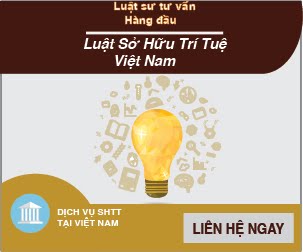International trade is important for each country to grow economically and influence through exchanging products and services, utilizing resources that create competitive advantage over others. In order to enable international trade, Vietnam has been a signing party to a number of international laws, international conventions, free trade agreements.
Up to present, Vietnam is a signing party to the:
UN Convention on Contracts for the International Sale of Goods 1980 (CISG);
The Comprehensive and Progressive Agreement for Trans-Pacific Partnership (CPTPP);
The Association of Southeast Asian Nations (ASEAN) 1967;
Vietnam is also the signing party to a number of the Free Trade Agreements:
ASEAN Free Trade Area 1992;
ASEAN Trade in Goods Agreement (ATIGA);
ASEAN Framework Agreement on Services (AFAS);
ASEAN Protocol on Enhanced Dispute Settlement Mechanism;
ASEAN-China Free Trade Area 2002;
ASEAN-India Free Trade Area 2003;
ASEAN-Japan Free Trade Area 2003;
ASEAN-Korea Free Trade Area 2005;
Vietnam – Japan economic Partnership Agreement 2008;
ASEAN-Australia-New Zealand Free Trade Agreement 2009;
Vietnam – Chile Free Trade Area 2011;
Vietnam – Korea Free Trade Area 2015;
Eurasian Economic Union 2015
ASEAN – Hong Kong free Trade Area 2017 (signed on 12/11/2017, Scheduled to be effective from 1 January 2019)
Agreements in WTO accession:
Annex 1A Multilateral agreements on trade in goods
General Agreement on Tariffs and Trade 1994
Agreement on agriculture
Agreement on the application of sanitary and phytosanitary measures
Agreement on textiles and clothing
Agreement on technical barriers to trade
Agreement on trade-related investment measures
Agreement on implementation of Article VI of the General Agreement on Tariffs and Trade 1994
Agreement on implementation of Article VII of the General Agreement on Tariffs and Trade 1994
Agreement on pre-shipment inspection
Agreement on rules of origin
Agreement on import licensing procedures
Agreement on subsidies and countervailing measures
Agreement on safeguards
Trade Facilitation Agreement
Annex 1B General Agreement on Trade in Services
Annex 1C Agreement on trade-related aspects of intellectual property rights
Until Sep 2018, Vietnam has been accelerating preparations for meeting commitments in EU-Vietnam Free Trade Agreement (EVFTA). It has been expected the EVFTA to be passed in the year of 2019, promoting Vietnam’s sustainable development through removing 99% of tariffs on goods traded between the two economies, expanding Vietnam’s textile, apparel export to the EU market. In return, the EVFTA will open Vietnamese market for EU companies and strengthen the protection of its investment into Vietnam.
ANT Lawyers law firm is a member of legal secretary of EuroCham in Hanoi, Vietnam, and has been a contribution to the legal review that support the investment into Vietnam. ANT Lawyers will be sending Mr Tuan Nguyen, the Managing Partner to take part in the EuroCham delegation visit in Brussels Mission in October 2018, with the main goal is to promote the fast conclusion of the EU-Vietnam Free Trade Agreement process, raise awareness as to the potential of Vietnam as a strategic partner for Europe, and deliver the views of the European business community in the country.
How ANT Lawyers Could Help Your Business?
Contact our lawyers in Vietnam for advice via email ant@antlawyers.vn or call our office at (+84) 24 730 86 529


























